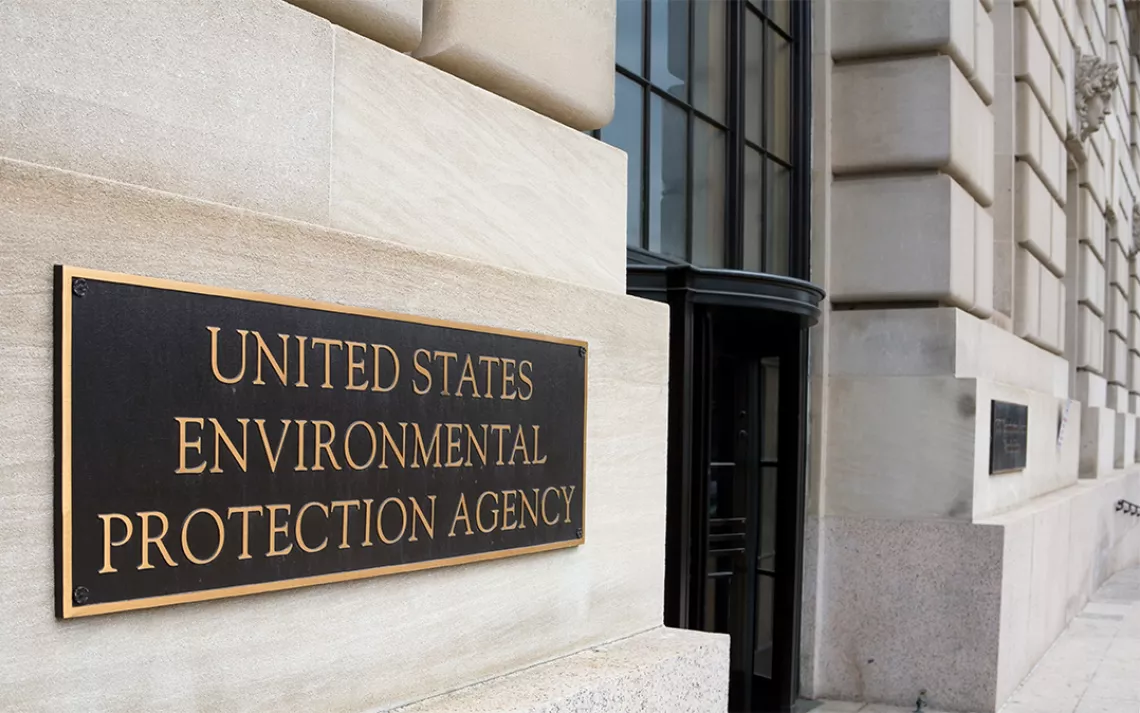Donald Trump’s Pick for EPA Chief is a Known Opponent of Environmental Protections
Scott Pruitt goes to Capitol Hill on Wednesday for his confirmation hearing

Photo by Skyhobo/iStock
This week, the U.S. Senate Committee on Environment and Public Works will deliberate whether to put the Environmental Protection Agency into the hands of a known opponent of environmental protection. Oklahoma attorney general Scott Pruitt goes to Capitol Hill on Wednesday for his confirmation hearing to be the next head of the EPA. His nomination has drawn widespread condemnation from critics who see it as a bid to neutralize, or even reverse, federal rules covering everything from clean air and water to pesticides and fuel economy.
Much of Pruitt’s experience when it comes to federal environmental laws involves his attempts to weaken or block them. In his six years as Oklahoma attorney general, he sued the same agency he is now nominated to lead a total of 14 times. Meanwhile, a well-documented body of evidence connects him to the same polluting industries the EPA was established to regulate.
“Scott Pruitt is a person whose words and actions demonstrate that he doesn’t accept or share the mission of the EPA,” says David Doniger, the director of the Climate and Clean Air Program for the Natural Resources Defense Council. “He has said things that call into question whether he accepts the legitimacy of the laws like the Clean Water and Clean Air Act that he would be charged in implementing.”
Pruitt, an Oklahoma state senator from 1998 to 2006, became Oklahoma AG in 2011. Immediately after taking office, he sidelined Oklahoma’s Environmental Protection Unit, which handled cases ranging from environmental pollution to fraud. The unit gained prominence in 2002 when it filed a series of lawsuits against poultry companies alleged to be dumping chicken waste into Oklahoma reservoirs. Pruitt replaced it with a “Federalism Unit” to battle what he saw as regulatory overreach by the federal government.
Pruitt gained national prominence in 2011 when he sued to block the Affordable Care Act, at that time the first lawsuit of its kind. He also joined other GOP attorneys general in a variety of other lawsuits against the administration, from efforts to halt Obama’s immigrant deportation protections to weakening the Dodd–Frank Wall Street Reform and Consumer Protection Act. But it is his repeated efforts to overturn federal safeguards for the environment and public health, and to block the EPA from responding to climate change, that disturb environmental advocates.
Pruitt has sued the EPA over everything from limits on lead and other toxic air pollution to health standards for smog and mercury. In one case, he sought to overturn the EPA’s Cross State Air Pollution Rule, which requires states to reduce ozone pollution from power plants. According to the Environmental Defense Fund, the rule will cut emissions of sulfur dioxide by 73 percent and nitrogen oxide by 54 percent, with the potential of preventing up to 34,000 premature deaths and 400,000 asthma attacks.
Pruitt joined a lawsuit with other state attorneys general to block the EPA’s determination that carbon dioxide is a greenhouse gas that endangers public health and welfare. The EPA made the determination in 2009 in response to the 2007 Supreme Court decision Massachusetts v. EPA, which empowered the agency to control carbon dioxide and other greenhouse gases. The determination was made based on thousands of pages of scientific analysis. Pruitt and other attorneys general challenged it anyway. They ultimately lost in the D.C. circuit, which ruled that the EPA was well supported by the science.
In 2015, Pruitt led the fight to shut down the EPA’s Clean Power Plan, the nation’s first federal program to reduce carbon pollution from existing coal- and gas-fired power plants. He also sued to block the agency’s Mercury and Air Toxics Standards, signing a legal brief that dismissed the benefits of such protections as “small, uncertain, and in most instances unquantifiable.”
He has consistently denied the consensus science of anthropomorphic climate change, calling the debate “far from settled.”
The energy companies that would most benefit from Pruitt’s litigation have donated hundreds of thousands of dollars to him since his election as AG in 2011. His super PAC Liberty 2.0 has received about $168,000 from fossil fuel companies since it was launched in 2015, and his leadership PAC Oklahoma Strong Leadership PAC received around $72,000 during that same period.
 The Magazine of The Sierra Club
The Magazine of The Sierra Club







